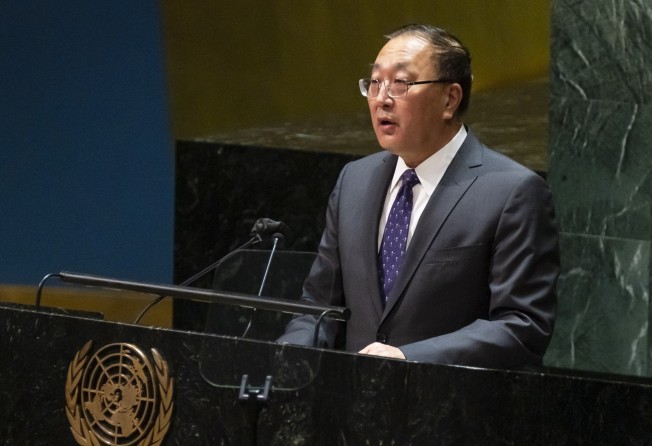
China need not pick a side in Russia-Ukraine war, but it should mediate for peace
- Blindly accepting the West’s ‘good-vs-evil’ narrative risks prolonging the crisis, and China is right to resist pressure to choose a side
- Instead, it must focus its efforts on securing a speedy resolution to avert further bloodshed and a global food crisis

There is considerable reason for China to pursue a policy of discreet mediation of the Russia-Ukraine conflict. Such a policy is in China’s own interests and would benefit the global economy, but these factors are not the most critical considerations.
Some argue that China should accept the virtue of Western sanctions and condemn Russia. Meanwhile, certain extreme internet users want Beijing to aid Russia or stand idly by as the world burns.
There are arguments for these positions and both sides of the conflict, based on morality, international law and national interest, and each merits review. However, perhaps most salient of all the considerations is the shape and character of the world we hope one day to inhabit.
To determine which course of action to pursue, we must think beyond the exigencies of the moment and even how these calamitous events affect our own tribe and nation. This requires struggling to grasp the position most opposite to our own, if not to embrace it, then to better understand it.
It bears remembering that the ties – and animosities – between Russia and Ukraine stretch back to the Slavic-Viking kingdom of the ninth-century Kievan Rus; that despite repeatedly expressed concerns about the eastward encroachment of Nato, Western powers encouraged and legitimised a coup against the democratically elected Ukranian leader Viktor Yanukovych in 2014; that this exacerbated Russia’s worries about an unfriendly alliance’s push towards a border over which it has repeatedly been invaded in recent centuries.
And that, in Kosovo, Iraq, Libya and elsewhere, the same nations that are so righteously indignant about infringements on Ukraine’s sovereignty repeatedly ignored these norms when it suited their interests. These double standards do not justify this war, but they cannot be entirely dismissed.
It would be foolish to propagate or blindly accept a narrative of the Russia-Ukraine conflict as simply the newest episode of a good, noble and democratic West struggling mightily against a vile, debauched and despotic East.
To conceptualise the dispute this way does China few favours, whichever side it takes. Such narrow Orientalism dates at least to the time of Augustus’ skilled propaganda against Antony and Cleopatra, but this tradition does little to help end the conflict. Moreover, it does much to continue it, and perhaps this is even part of the point.

Many extremists on both sides seem almost to want the war to continue, certain that total victory for their side will bring vindication and geopolitical advantage. In reality, the results of this black-and-white world view are yet more blood, pain and deprivation, and it is this result that China should expend its capital and efforts to prevent, regardless of threat or entreaty, from friend or foe.
Whatever one believes about the historicity of Ukrainian nationalism or the Russian right to pre-emptive self-defence in its near abroad, the fact remains that this conflict is already causing immense and increasing problems in the world today.
However tempting it might be to challenge why the lives and well-being of Europeans seem so disproportionately valuable to Westerners in comparison to Congolese, Afghan or Yemeni ones, this conflict will undeniably produce massive hardships across the globe, metastasising the longer it continues.
Consider the additional implications, among other things, of Ukraine ranking among the world’s leading exporters of wheat, and then ask how many people in the developing world should starve to perpetuate this war.
China’s interest in guiding this conflict towards a quick resolution is clear, and not only for its own stake in building a more stable, predictable and interconnected environment in which to conduct business.
Nor should it pursue mediation just for the sake of critical international law principles that proscribe interference in the internal affairs of other sovereign nations, norms China has steadfastly and admirably upheld over many decades.
First and foremost, China should guide this conflict towards a rapid end because reducing human suffering is the right thing to do. It should do so because we cannot afford to allow the world to drift into armed camps of self-righteous egotism and a new cold war. A world is which China pursues international harmony is a safer, better world for all.
Dong Lei is a non-practising solicitor in Hong Kong and is the principal at AB Highwood Consultants
